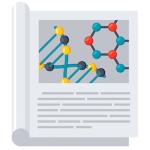Four and a half years ago, an earthquake in Nepal initiated an avalanche on Mt. Everest, resulting in the deaths of 22
social science
McDonald's. Dell. Chrysler. Rolls-Royce. Sears. Trump. All are companies that bear the names of their founders. Does that matter? One would think not, as Shakespeare told us, "A rose by any other name would smell as sweet."
Last week, a funny and clever hoax was perpetrated against a social sciences journal.
NYU physicist Alan Sokal thought very little of the research performed by his colleagues in the social sciences. To prove his point, he wrote a paper that used plenty of trendy buzz words but made absolutely no sense.
Imagine you receive a phone call from a pollster. When you answer, the person on the other end asks, "For whom do you plan to vote in November: The honest and trustworthy Mr. Smith, or his lying, cheating, and disgusting opponent Mr.







